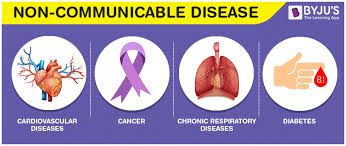Experts Call for Stronger Food Policies to Curb NCDs in Nigeria
By Franca Ofili
Health experts have urged the Nigerian government to adopt stricter policies to combat the alarming rise in non-communicable diseases (NCDs), calling for urgent reforms in the country’s food regulatory system.
The call came during a media roundtable held Wednesday in Abuja, organised by the Network for Health Equity and Development (NHED), where participants emphasised the need for sodium reduction and the introduction of clear nutrition labelling on food packaging.
READ ALSO: WAPA Trains 68 Instructors to Strengthen Vocational Skills Delivery in Lagos
According to experts at the session, excessive sodium consumption remains a major contributor to high blood pressure, heart disease, stroke, and other chronic illnesses, many of which are now leading causes of death in Nigeria and other developing countries.
Dr. Joseph Ekio, a global health advocate, warned that cardiovascular disease, diabetes, cancer, and respiratory illnesses now account for most NCD-related deaths worldwide, with low- and middle-income countries like Nigeria bearing the brunt.
“Salt intake is deeply embedded in our daily diets, but when consumed in excess, it becomes dangerous,” Ekio said. “We urgently need policies that promote healthier diets—because without strong regulation, public health will continue to suffer.”
READ ALSO: Breaking: Makinde Honours Olunloyo, Renames Polytechnic Ibadan After Late Former Governor
He noted that sodium reduction and Front-of-Pack Warning Labels (FOPWL) are two practical interventions that could empower Nigerians to make healthier food choices. These front-facing labels would clearly alert consumers about the presence of harmful levels of salt, sugar, or fat in packaged foods.
Dr. Ekio also underscored the critical role of the media in shaping public perception and supporting advocacy efforts.
“Behavioural change doesn’t happen overnight,” he said. “The public must be constantly engaged with the right messages to counter misinformation and cultural myths around diet and health.”
Abayomi Sarumi, Associate Director of the Food Justice Programme at Corporate Accountability and Public Participation Africa (CAPPA), echoed this view. He warned that many Nigerians remain unaware of the real dangers of high sodium intake.
“We need the media to take the lead in this conversation,” Sarumi said. “Excess salt is not just about sweaty palms or the risk of hypertension—it is a silent killer. Yet, many people still don’t understand the long-term damage it can cause.”
He lamented that cultural beliefs and misinformation often make it difficult to convey the urgency of dietary change, and called on media professionals to demystify these issues through consistent and accurate reporting.
Joy Amafah, Country Coordinator for the Global Health Advocacy Incubator, called attention to the role of ultra-processed products (UPPs), which she described as key drivers of poor health outcomes in Nigeria and across Africa.
She advocated for evidence-based policy reforms such as Nutrition Profile Modelling (NPM) and front-of-pack labelling to hold food manufacturers accountable and inform consumer choices.
“We need to start holding the food industry to higher standards,” Amafah said. “Aggressive marketing of processed foods, especially to low-income groups, is fueling the NCD crisis. Governments must rise to the challenge.”
As Nigeria faces a growing burden of lifestyle-related illnesses, stakeholders at the roundtable agreed that multi-sectoral action—driven by policy, advocacy, and public education—is key to reversing the trend.




